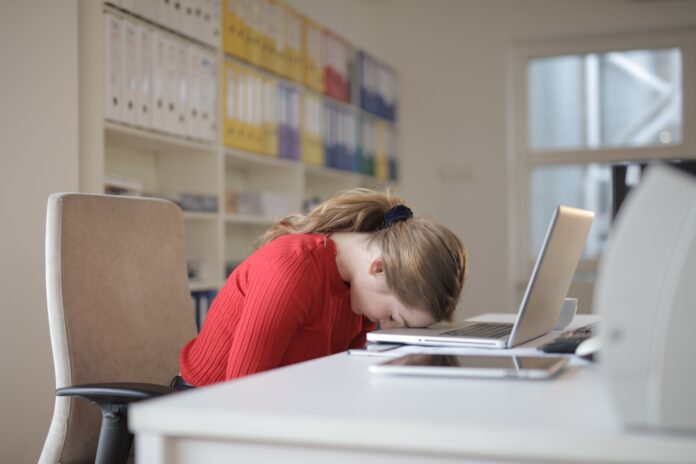Is sleep apnea keeping you up at night? This rather common condition affects many people and some people don’t even know they have it. There are some things you can do to make loving with condition a little more bearable. The following article will help you sleep better with sleep apnea.
There are three different types of sleep apnea. Obstructive, central, and complexes are all forms of sleep apnea. You need to go to the doctor and have a professional assess which type of sleep apnea you have, so they can offer the best treatment and advice for your specific condition.
If you have sleep apnea, be sure to ask your doctor every five years if you should have a follow-up sleep study. As your weight and health change, your CPAP pressure may need to be adjusted. The most accurate way to reassess your needs is to have another sleep study with CPAP so the appropriate pressure can be determined.
Consider sleeping sitting up if you have sleep apnea, and you do not have a CPAP available. Perhaps you have been diagnosed with sleep apnea, but you have not had your CPAP prescribed yet. Maybe the power went out, and your CPAP will not work without electricity. Whenever you have to sleep without the benefit of CPAP therapy, sleeping sitting up will help to keep your airway from collapsing.
If you have been prescribed a CPAP for sleep apnea, make an honest effort to use it at least four hours a night. It can be hard, at first, to get comfortable using it. However, it needs to be used for four hours each night for it to be effective. You’ll be comfortable using it on a regular basis in no time.
Avoid using sleeping pills and do not be tempted to consume alcohol before bedtime. Both sleeping pills and alcohol are sedatives, which can interfere with your breathing, as they cause your throat muscles to relax. You should also avoid other types of sedatives, including some prescription painkillers and many street drugs.
Clear up your nasal passage before heading to bed. If you suffer from sleep apnea and have problems with a “stuffed up” nose, using a nasal spray or device can help clear your nasal airway. This is not a permanent solution, but one you can use when your apnea symptoms are the worst.
Keep your bedroom in prime shape for sleeping. Insomnia and sleep apnea are often connected. This makes keeping an environment in which you sleep at the right temperature, lightness level and sound level important for helping you get a good night of rest. The right environment also means leaving your stresses outside the bedroom to ensure you are relaxed enough to fall asleep.
If you use a CPAP, then ensure a medical ID is carried with you at all times. Upon need for help and medical attention, your condition must be known. The ID needs to include all of the medical information pertaining to your CPAP use.
You will find it easier to go to sleep and remain asleep if you follow a schedule. Go to bed at the same time, follow a bedtime routine if it helps you relax and get at least eight hours of sleep every night. Create the ideal environment for you to sleep in.
Sleep apnea events can be decreased by keeping regular sleep hours. Going to bed and getting up at approximately the same time every day will provide better and more relaxed sleep. This simple lifestyle change can be a big help when sleep apnea is in the mild to moderate range.
Sleep apnea is a serious condition that affects many overweight people. One of the first things that should be addressed by anyone suffering from this condition is to lose some weight. Until your weight is normal, your doctor may find it difficult come to an accurate diagnosis of the cause.
If you suffer from sleep apnea, change your sleeping position to reduce the number of sleep apnea events. Sleep on your side instead of on your back to lessen the likelihood that the soft tissue in the back of the throat will collapse and block your air passages. Prop a pillow behind your back to help you stay on your side as you sleep.
Anyone afflicted with sleep apnea might need solutions to get good rest. Stick to a regular, set schedule and go to bed at the same time each night. Also try to create an environment that is conducive to getting restful sleep. If you don’t set up your room correctly, you may not be able to sleep.
If a breathing device hasn’t solved your sleep apnea problems, then you may want to consider a dental device. There are a variety of types of these, but they can mostly be made by an orthodontist. They work by changing the shape of your mouth and throat while you sleep and removing obstructions.
If you suffer from sleep apnea, try chewing on both sides of your mouth! It may sound odd, but if you think about it, chewing works all of your jaw muscles, so balanced strength and functionality may lessen the airway problems associated with sleep apnea. You might also try specific exercises that work all muscles in the jaw and throat.
If you take sedatives or sleeping pills and suffer from sleep apnea, discontinue these medications. Many of these medicines relax your muscles, including those in your airways. This leads to an increased likelihood of sleep apnea. If you are having trouble sleeping, talk to your doctor about other options that will not affect your breathing.
You do not have to look at sleep apnea as something that will ruin your life or your sleep. There are several things that you can do to make sleeping at night a more pleasurable experience. Use the tips in this article to help you deal with this common condition.



